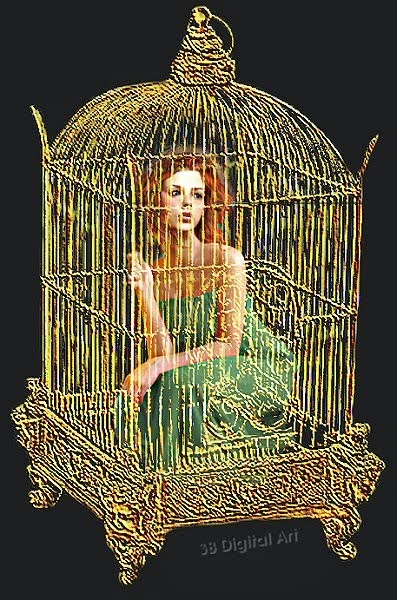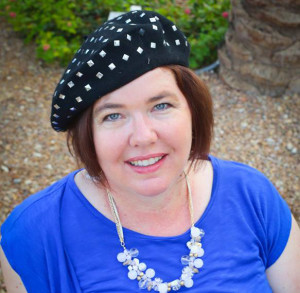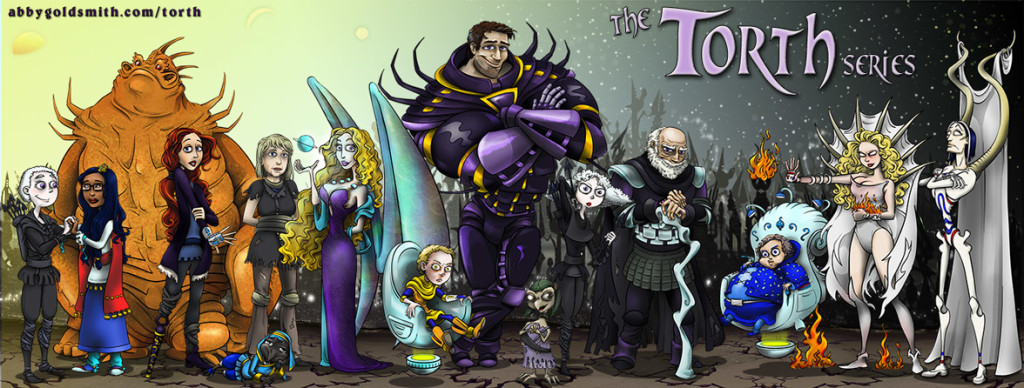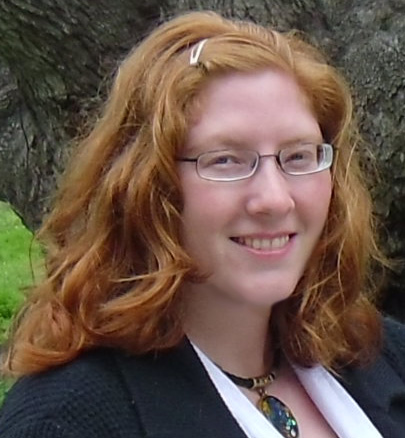A Guest Post from Emily Godhand
Back in February of this year I was able to attend to Kevin J. Anderson and Rebecca Moesta’s “SuperStars Writing Seminar” on a scholarship from Wattpad. This was a seminar to “teach you the business of being a writer” and boasted many instructors well known in the industry. I was given the opportunity to learn from individuals such as Jody Lynn Nye, Todd McCaffrey, James A. Owen, and Kevin and Rebecca themselves. And those are just the people I had the great fortune of meeting!
When I first learned I was picked for the scholarship, I was beyond excited to the point of being in actual disbelief. I felt like I had been eating a chocolate bar named Wattpad and was enjoying something pleasant and made me happy, and then suddenly I was holding a shiny golden ticket in my hand. But as happy as I was, I was so nervous I thought maybe it was a set up to a middle school joke come back to haunt me. You know the kind where someone said something positive and then laughed at you for actually believing it? That can’t just have been me, right?
Sometimes I can turn pretense into an art form and act full of grace and charm, when internally I’m screaming and shivering like a naked chihuahua about to piss itself. Factor in that crowds and hotels greatly trigger my PTSD, and I was ready to curl up in the corner, hug my knees, and rock back and forth until the world made sense again.
Within this internal cesspool of doubt and insecurity, and amidst schoolyard worries of “Will the other kids like me?” and “What if I’m not prepared enough? or worse, “What if they don’t like my story?!”, I did have those sickly feelings of hope and anticipation that this was going to be something wonderful at best, and at worst, great fodder for your writing.
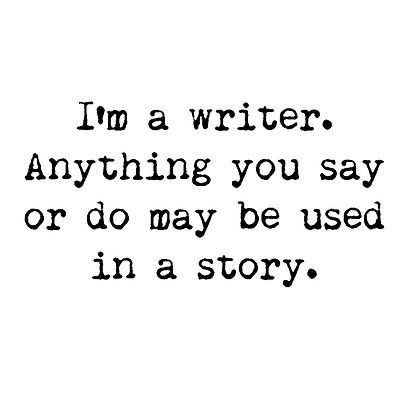
Because new experiences can be a writer’s bread and butter.
And yet, writers have a certain reputation for being reclusive and introverted, withdrawn into a world of our own making where reality is just a thing for those without imagination. It’s true, writing is hard work that takes focus and some of us need our solitude to do that. The long nights fueled by IV drip caffeine. The sweat forming at your brow from the intensity of your thinking. Putting ass-in-chair for hours to finish that latest chapter. The incredible amount of work we put into our writing to the point that we should probably eat something. Preferably every day. And maybe even two or three times if we can afford to be away from your keyboard that long. I’m sure for some of us (…me) our core muscles are neglected to the point we’ve melted into hunched monstrosities with T-rex arms, and we haven’t seen the blessed light of day such that we shriek and cower when some well-intentioned soul opens the curtain. ((…just me?))
When I sat down to write, and I would have trouble describing something, or conveying an emotion, I was always given the advice “write what you know”. Then felt frustrated because I didn’t think I knew anything except maybe what it’s like to hide within the tiny walls of my office with just the rats and ennui for company. …And maybe also some random, dated pop-culture references. If I needed to write about characters that were self-absorbed recluses with awkward social skills and crippling self-doubt I had that down. Because that’s all I’d ever know unless I faced my anxiety as much as was healthy and explored the world around me. By not seeking out new experiences, especially challenging ones, I was limiting what I knew, and therefore limiting what I could write about.
I figured, I spend countless hours pretending to be individuals who face their fears and the unknown, so surely, truly, I could learn a little from method acting and borrow some of the character’s strength to be able to go to this seminar. And if I couldn’t and ended up numb and dumb with fear and anxiety? I write thrillers and horror stories. I could certainly make use of those feelings in my work.
I was fooling myself if I ever thought I could glean the secrets of the universe to translate onto pages by doing the same routine every day. I’m a human being first, and human beings tend to crave variety and novelty. Writing is hard enough, but it’s hard to write believably about things you haven’t seen or experienced.
When I needed to describe 16th Street Mall in downtown Denver, I put on some pants, left the house, and went to downtown Denver. I needed to know more than what it looked like, and I had the opportunity to learn. The pictures I found online were stunning, but photographers are known for getting the best shots of a place. It’d be the difference between your wedding photos and waking up to your partner in the morning. There’s a different type of beauty in authenticity.
 What, it doesn’t always look like this?
What, it doesn’t always look like this?
The staged photos in the best light may not convey the actual feeling of being there: the noises, the smells, the weather, the conversations, the dress, the atmosphere. When I did go downtown, I witnessed a dirgesinger get heckled by buskers who broke into Gnarls Barkley’s “Crazy”. I got to speak to the buskers about their experiences and see how many artists were on the street. I couldn’t have done any of that from my house, and while it may not have made a significant difference in the overall plot of my story, those tiny details weren’t unnoticed by my readers, and contributed to their immersion in the story.
In that particular chapter there were several twists and turns and horror elements, but the realistic description of downtown Denver was what really hooked my readers. They also had comments on something else they liked, sure, but nearly every single person commented on the description of downtown Denver.
* The way you discuss Denver, it really comes to life and makes elements like the “prophet” even creepier.
* I love the way you describe Denver. You completely capture that downtown urban feel. The characters you create are all rich and vivid.
* I’ve never been to Denver. 16th Street sounds amazing.
* Sounds like a really neat downtown area, very artistically stimulating.
* Gotta say I loved the downtown scene, with the preacher and the singers. It kind of eased off the tension for a moment and painted a vivid picture of things that make the city unique.
….Success!
Still, it’s one thing to do something as simple as go downtown in my own city and simply report what I found there. It’s another to use my own experiences and feelings to empathize with my character and convey what they are feeling, especially if they are painful or negative.
When I had to do this with my main character’s recovery from her trauma and the first month of her PTSD, it was like finding that mental storage closet where you had shoved all your memories. And as your hand hovers over the knob, you’re not sure if some musty linens are going to fall on your head, or if they’re going to have every crawling, putrid thing topple down with them.
It was probably the hardest thing I ever had to write because it felt like tearing open an infected wound to clean it. Yet I would say it is also probably the truest expression of my own voice since for the most part I just told how I felt and my own experiences, and put those words in my character’s mouth.
This particular scene received the most praise out of all 60+ chapters (as of this writing).
* I can feel Annie’s sense of desperation to understand what happened, and her frustration at the world for wanting her to figure it out too fast.
* I can really feel Annie’s confusion, distress, her anger and frustration. My favourite part by far was her speech to the psychiatrist. Although I really hated him, he was written well.
* The psychology of grief and trauma came across as very genuine. The feeling of loss over someone’s death rarely manifests itself directly, at least not until years after the event.
* I think anyone who reads this is going to be able to feel the pain Annie is going through right now, and the way you’ve described her trying to cope is heartbreaking. I think this is probably one of your best chapters as far as the use of language goes, and I feel bad for Annie’s mom too… Just trying to help but she has no idea how. 🙁
So, how did things go at the Superstars Writing Seminar? Next time you read a piece by me about a character finding acceptance and understanding with a group when she was afraid of rejection, you’ll know.
About the Author: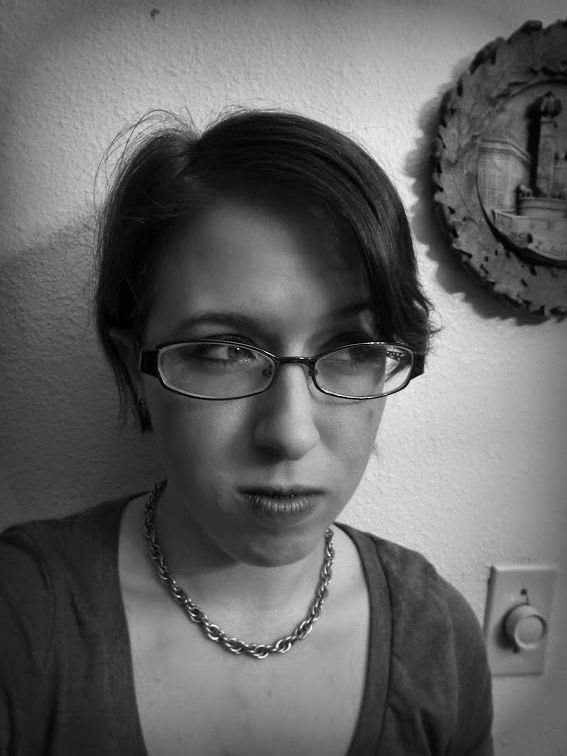
Emily Godhand is a paranormal thriller author who lives in a book fort in Denver, CO, with seven rats who revere her as their Queen.
As former psychiatric technician, she draws her inspirations from her work and the constant nightmares she’s had for 13 years. As such, her works tend to focus on an exploration of trauma, immortality, and human consciousness.
Read her latest work on Wattpad, where she is an Ambassador.

